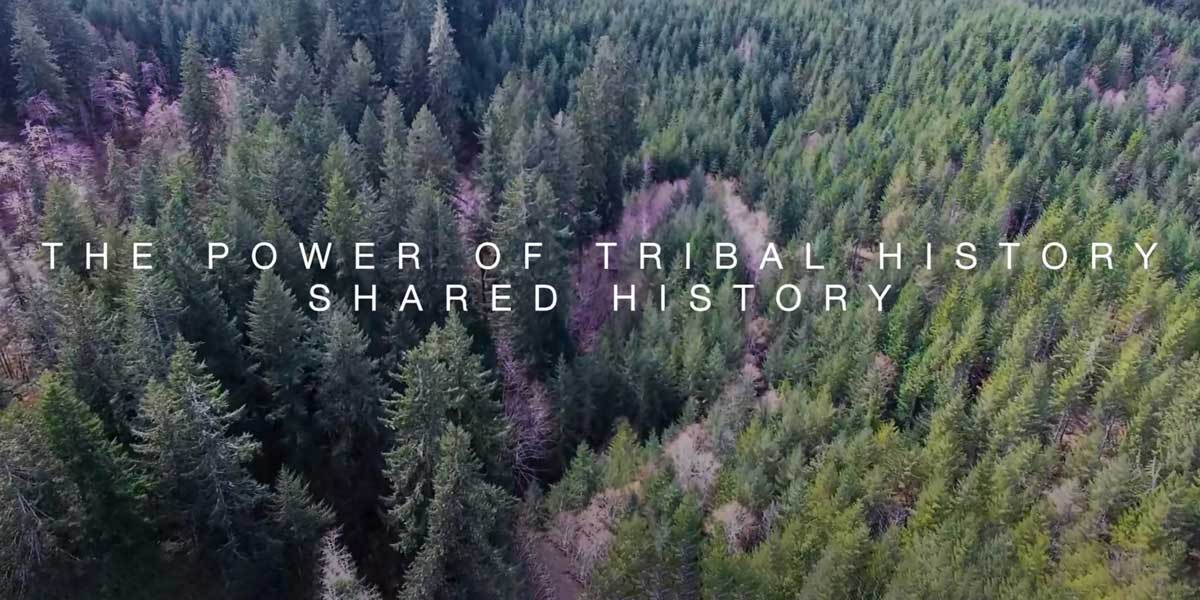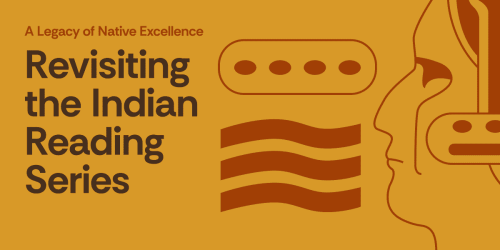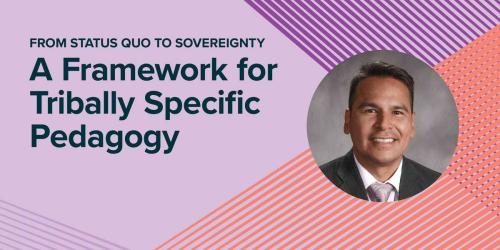New Video Introduces Oregon Educators to Tribal History

With support from a variety of partners and the nine federally recognized Tribes in Oregon, Senate Bill 13 passed in 2017 authorizing the Oregon Department of Education (ODE) to develop a statewide curriculum on the Native American experience in Oregon.
As Tribal History/Shared History nears its release this academic year, a new video introduces the curriculum to the educators and leaders who will take on the role of sharing the curriculum with students.
The curriculum includes 45 lesson plans across grades 4, 8 and 10 in subject areas that include language arts, math, social studies, health and science.
"It’s an invitation and an opportunity to teach the rich history of our land and its people and to pair the strengths of our education system, teachers and students with the new knowledge and content the curriculum will establish," says Shadiin Garcia who partnered with an Education Northwest team and ODE to create the curriculum.
"I think of Senate Bill 13 as a reawakening in education," says Mandy Smoker Broaddus of Education Northwest. "It’s a way that tribal peoples can have their presence validated across the state and in classrooms—in many cases, for the first time."
"Not only does the legislation address the erasure of American Indians from traditional history curriculum materials, it counteracts the misconceptions, stereotypes, biases and inaccurate information that are reinforced all too often in education."
—Mandy Smoker Broaddus
According to ODE Director Colt Gill, the first phase of Tribal History/Shared History involved collaborating with the nine federally recognized tribes in Oregon to create the Essential Understandings of Oregon Native Americans. These Essential Understandings will be used as the framework and foundation for building the statewide Tribal History/Shared History curriculum and as a professional development tool for teachers. Additionally, each tribe is creating place-based lesson plans to share with the schools in its area.
The next phases of the project include providing districts and teachers with the professional development they need to implement the standards-aligned curriculum effectively. The professional development is aimed at easing the transition to the new curriculum.
"Rather than adding to teachers’ plates, you give them the opportunity to move things around and make adjustments that don’t feel overwhelming," says Smoker Broaddus. "They can swap out older lessons—partially or in their entirety—with pieces from the new curriculum."
Gill affirms the importance of providing classroom teachers with the background knowledge they need as they prepare to teach the curriculum. "These children that we're teaching will be tomorrow's leaders, and they'll shape a brand new future for the state of Oregon and its relationship with each of our tribes."
The Power of Tribal History/Shared History was created by Education Northwest with support from Meyer Memorial Trust.



